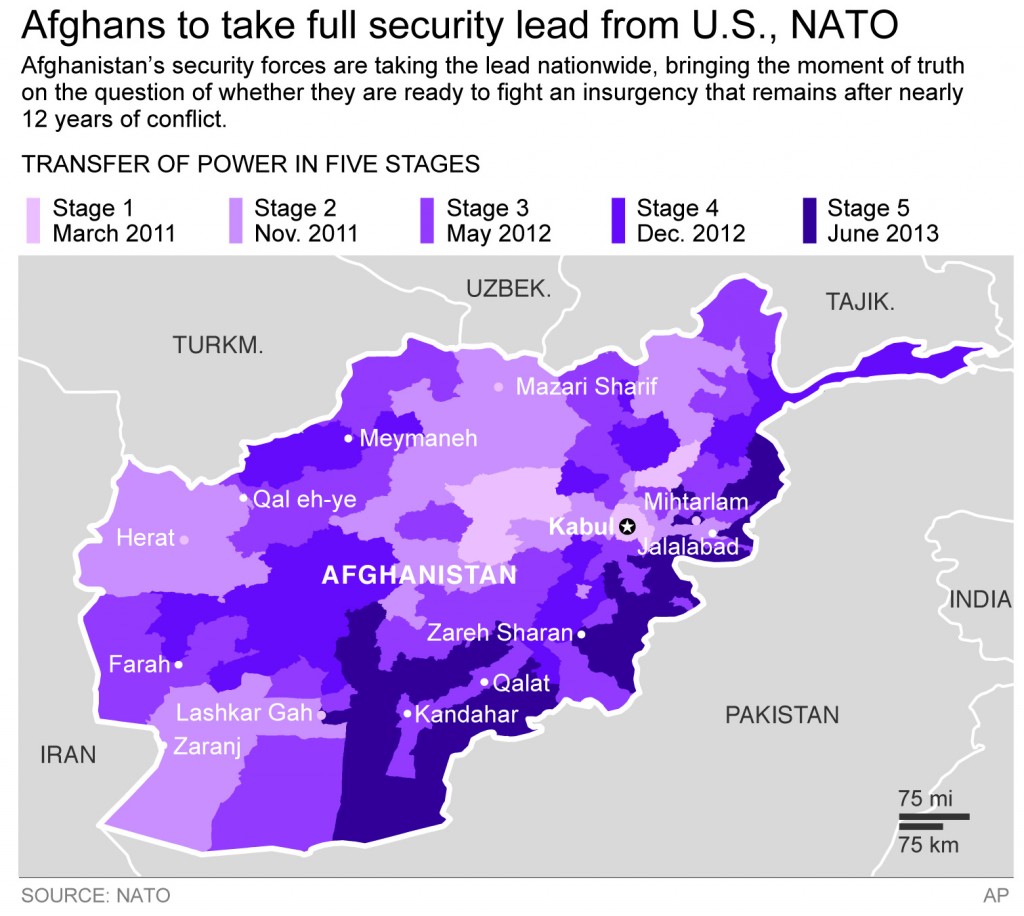Bombing Mars Final NATO Transfer of Afghan Security Duties
 A large bomb targeting a minority lawmaker in western Kabul exploded Tuesday morning, an hour before NATO transferred formal responsibility for the nation’s security to Afghan forces, police said, killing three civilians and wounding more than a dozen others.
A large bomb targeting a minority lawmaker in western Kabul exploded Tuesday morning, an hour before NATO transferred formal responsibility for the nation’s security to Afghan forces, police said, killing three civilians and wounding more than a dozen others.
Mohammad Mohaqiq, a prominent lawmaker and former cabinet member from the minority Hazara community, the intended target, survived the attack but at least four bodyguards in his convoy were wounded, said Gen. Mohammad Daud Amin, Kabul’s deputy police chief.
No group claimed immediate responsibility but the blast, a roadside bomb detonated by remote control, was specifically designed to disrupt Tuesday’s security transition, said Gen. Mohammad Zahir, head of Kabul’s crime and investigation unit.
The assault in the western Pul-e Surkh area of western Kabul, near the headquarters of the Afghan Independent Human Rights Commission, was the fifth high-profile strike in six weeks on the heavily guarded capital. The Taliban said it would target foreign troops, U.N. officials and Afghans working with international forces at the start of its spring offensive, a time when warmer weather generally brings more intense fighting.
Tuesday’s attack came minutes before a ceremony attended by Afghan President Hamid Karzai and NATO Secretary General Anders Fogh Rasmussen marking the formal handoff of security responsibility to Afghan National Security Forces.
The transition is a major milestone in the 12-year-old war. In practice, however, some 100,000 international combat troops will continue to provide intelligence, training, air power and ground forces as needed for the foreseeable future.
Critics counter that the 350,000-strong Afghan National army suffers from inadequate training and morale and isn’t ready, but is nevertheless being pushed into a commanding role by NATO members keen to withdraw their combat troops by late 2014 and end the high costs and body count of a protracted conflict.
At least 2,100 members of the U.S. military have died in Afghanistan, including over 1,740 killed in conflict situations, since the U.S.-led invasion in late 2001, according to the Associated Press.
This article appeared in print on page 3 of edition of Hamodia.
To Read The Full Story
Are you already a subscriber?
Click "Sign In" to log in!

Become a Web Subscriber
Click “Subscribe” below to begin the process of becoming a new subscriber.

Become a Print + Web Subscriber
Click “Subscribe” below to begin the process of becoming a new subscriber.

Renew Print + Web Subscription
Click “Renew Subscription” below to begin the process of renewing your subscription.





